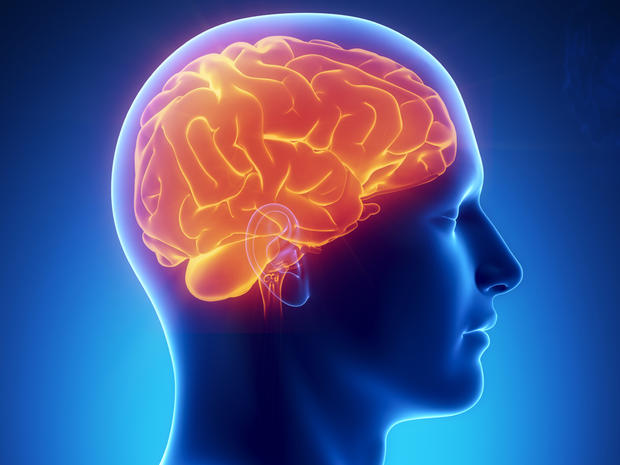Experimental treatment might "reset the clock" on Huntington's disease
(CBS News) An experimental treatment might reverse symptoms of the progressive, genetic condition Huntington's disease.
PICTURES: Cyber-bullied girl with Huntington's Disease dies
Huntington's is an inherited disease caused by a mutation in a single gene that causes a progressive breakdown of the brain's nerve cells. This degeneration in the brain may have a wide impact on a person's functional abilities, causing disorders that affect movement and mental health.
The disease can't be cured, but medications can reduce some of the symptoms from movement or psychiatric disorders that are caused by the disease.
This new treatment however might be able to reverse the symptoms, producing movement and neurological benefits in people with moderate to severe forms of the disease that can be sustained months after treatment. The treatment is described in the June 21 issue of the journal Neuron.
The new treatment, so-called "antisense oligonucleotides" or ASOs, targets the mutant gene, binds to it, and destroys the gene's molecular instructions that cause it to make the toxic huntingtin protein which breaks down nerve cells.
The researchers tested it in mice and non-human primates and saw positive effects. A single injection of the treatment caused animals to move better within one month and achieve their normal function within two months. The benefits lasted an impressive nine months, even after the drug disappeared from the animals' systems and toxic protein production had resumed. The researchers hope it will do the same in humans.
"For diseases like Huntington's, where a mutant protein product is tolerated for decades prior to disease onset, these findings open up the provocative possibility that transient treatment can lead to a prolonged benefit to patients," study author Dr. Don W. Cleveland, chair of the UC San Diego department of cellular and molecular medicine, said in a statement. "This finding raises the prospect of a 'huntingtin holiday,' which may allow for clearance of disease-causing species that might take weeks or months to re-form." If so, Cleveland said, a single drug treatment could "reset the disease clock" and provide long-term benefits.
Cleveland told UT San Diego that his team anticipates testing the treatment on humans in 18 months.
About 30,000 Americans have Huntington's disease, the study authors said. According to the Mayo Clinic, most people with Huntington's disease develop symptoms in their 40s or 50s, but the onset of disease can occur earlier or later in life. When the disease begins before age 20, the condition is called juvenile Huntington's disease, and often carries different symptoms.
Symptoms of Huntington's disease may include movement problems such as involuntary jerking movements or muscle contractures, an impaired walk and posture, and difficulty speaking and swallowing. Cognitive and psychiatric symptoms include difficulty planning and organizing, lack of impulse control, clumsiness, insomnia, obsessive-compulsive disorder, bipolar disorder and most commonly, depression.
The Mayo Clinic has more on Huntington's disease.
